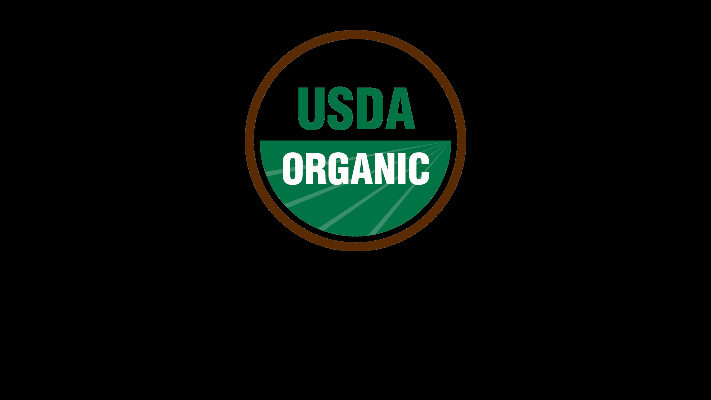In January 2021, the USDA notified APEDA that it was ending US-India Organic Recognition.
Indian Organic Food Industry veteran, MUKESH GUPTA, answers frequently asked questions about the impact this change will have on operators with regards to new rules and regulations.
Note: To find the details of organic ingredient suppliers, organic brands and organic shops in India, buy the Organic Directory
FAQ:
How long have India and USA had equivalence-reciprocity in organic certification?
Earlier, India/APEDA (Agricultural and Processed Food Products Export Development Authority) had an equivalence deal with USDA, ie, India and USDA were accepting each other’s organic standards and procedures for certification.
What does the equivalence signify?
The equivalence means that any operator when getting certified by a certification body (CB) accredited by APEDA for both NPOP (National Programme for Organic Production) and NOP (National Organic Program), is automatically treated as certified for both standards. This means now these products can now sell in the US market and elsewhere with the NOP logo.
What will happen to Indian operators registered and certified under USDA-NOP by APEDA-accredited CBs?
The US and Indian authorities have agreed on a transition period for operators to shift to new CBs directly accredited under USDA-NOP.
What is the deadline to shift to USDA-accredited CBs?
As per information shared by USDA, by July 2021, Indian operators need to switch to new CBs. In addition, they will be allowed one year to get new certificates from an NOP-accredited CB.
If the renewal date for certain operators is coming any time from now to July 2021, what should they do?
They should ask for 2-3 months grace period by the end of June 2021. For this grace period, they can discuss and agree on some token fees with their existing CBs.
Inspection and audit during this period will need to be discussed and agreed on as per advice from APEDA and USDA.
If the renewal date for certain operators is coming after July 2021, what should they do?
They should ask for refund of fees beyond July 2021, by when they have to shift to another CB.
The inspection and audit, if pending, will need to be discussed and agreed upon as per advice from APEDA and USDA in such cases.
If an operator is certified as per USDA-NOP through an APEDA-accredited CB, will they automatically qualify and continue to enjoy the NOP certification after switching over to a new CB?
In all likelihood, this should be permitted and accepted.
What would happen to stocks lying with farmers/operators/processors/handlers, etc, when they shift to new CBs?
The old CBs should ideally give a statement as parting document to specifically quantify the stocks as on last date of their switch. Once this is recorded, the new CBs should accept this as opening balance for NOP-certified stock.
This stock would also need to be verified through TraceNet records.
Why is there a difference between NPOP and NOP procedures?
When India was making its rules for NPOP, it aspired to get equivalence with USDA-NOP and EU, both. So, she became very strict in framing its rules. Now, on many requirements for certification, NPOP is more demanding, whereas NOP is slightly liberal. Also, there is a fundamental difference between the rule-making authorities between the two countries.
In the US, they begin with the assumption that the operator is honest and he should be facilitated in complying with the standards.
In India, operators are more strictly controlled by rules.
What will be the impact on Indian operators after the withdrawal of NOP by USDA from India?
Changes will vary for different Indian operators:
Indian operators registered with CBs accredited for India NPOP and USDA-NOP can continue with the same CBs. They will, however, need to register separately for two licenses. This means they will need to pay more as well.
Indian operators registered with CBs with only NPOP will now need to go to one more CB with NOP license. This means they will need to pay to two separate CBs.
I am of the opinion that in the new regime, while there will be many processes that will become more stringent and the cost of certification will also go up, the present processes are actually quite tedious for operators, diverting the attention of business managers/owners away from business.
In the new situation, a lot of redundant processes and convoluted documentation will stop. This will allow operators to focus on business.
How difficult is it for operators to comply with NOP and NPOP requirements, given the new situation?
Earlier, there was one common procedure from registration to certification. Now, two separate procedures need to be followed. This means more paper work for both the operator, as well as, the CB.
Can you pinpoint specific things that will change significantly in the new situation?
There are many things that will change now with major impact:
First of all, the application between the two certifications (NOP and NPOP) will be different, leading to two different registrations.
The evaluation process for application will also change. NOP is far less restrictive as compared to NPOP.
The data requirement for NOP is also far less as compared to NOP. Audits are also fewer.
Operations with an annual turnover of less than US$ 5,000 will not have to go through audit. They will get certified only on declaration basis after the registration and document review.
In the new situation, under NOP, there is no requirement for data entry to comply with TraceNet. However, if someone is registered for both NPOP and NOP, they will need to have TraceNet data also as per NPOP, which can be leveraged for NOP verification as well.
Those who register only for NOP need not record their data on TraceNet.
Today, under NPOP, there are rules governing crop harvest quantity, stocks and shelf life-related parameters. Under NPOP, all these are different.
In India, the Item Names, Descriptions, Compositions, etc, are quite complicated, but under USDA, it is far more liberal. In all likelihood, this will be left to the discretion of the CB and the operator. And as long as it ensures integrity of the certification programme, there should not be any problem from USDA.
Today, under NPOP, ‘Crop’ and ‘Food’ is under one category, but Animals is under a different category. But under NOP, they are together. So, all farm operations certified for crop will automatically get certified for animal-related products also – if practised on the same farm, as is generally done in India.
Under ‘Farmer Group Certification’ also there are many changes. The number of farmers in one group, land size restrictions, authentication document, geo coordinates, farm dairy, etc, will change now, under USDA-NOP.
But if someone is going for dual certification like NPOP and NOP, they may end up following the same rules and procedures.
Will the TC process continue and if yes, then what changes can be expected in the same?
The way we deal with TC now will change completely. It is currently quite cumbersome and lengthy.
Currently, TC is generated only through TraceNet. Will this continue in the future?
It will not be through TraceNet. It will be entirely between the CB and the operator to set up a procedure for this purpose.
What is going to be the impact of NOP withdrawal on fees charged by CBs in India?
Earlier, CBs were charging for two licenses like NPOP and NOP and now they will be able to charge only for NPOP, which is less expensive than NOP.
Can India/APEDA restrict USDA-NOP direct certification in India for Indian operators selling in Indian markets?
As of today, there is no direct rule governing this aspect. However, for export markets, there are rules that say that any product from India cannot be exported if it is not certified with India’s organic rules and is not carrying a valid TC issued from TraceNet.
Applying such rules will terribly affect Indian organic exports. Therefore, it may be a little difficult to enforce such rules. If it happens, then Indian exporters shall stop declaring their goods as ‘organic’. This will free them of restrictions.
What changes will take place in records maintenance after withdrawal?
USDA-accredited CBs will introduce their own set of forms and records. I am told, in the US, each CB has its own set of documents and forms to maintain records. In India, APEDA has a universal system applicable to all, so this may undergo some change.
What changes can be expected in Inspections post withdrawal?
The inspectors appointed by the CBs will undergo training as prescribed by USDA.
Will all of this have any impact on EU compliances?
India is continuing with EU equivalence. However, there are some issues related to processed products exported out of India to the EU where the rules are a little different and requirements are also different.
What will change for CBs post NOP equivalence withdrawal by USDA?
Earlier, CBs were licensed/accredited by APEDA for both NOP and NPOP. Now, they will be licensed/accredited only for India (NPOP). This means, now they cannot offer certification as per NOP to operators here in India.
Can CBs accredited by APEDA for US-NOP take new license/ accreditation from USDA in order to continue to operate in the same manner as earlier?
Technically, yes. But in terms of time and investment, it may be a little difficult to do it fast. Generally, it takes about 18-24 months for USDA to complete the process. In terms of expenses it can cost anything between US$100,000 to 200,000.
In terms of competencies, there should not be much problem, but compliances would be stricter.
Currently, there are only three CBs, which have direct license/accreditation as per NOP, namely Onecert, Lacon and Ecocert.

Mukesh Gupta has been actively involved in the Indian Organic Industry since 2002. He was Director-Operations of an Indian organic food brand for 15 years.



Very informative
It was very helpful to know the changes and steps to be taken.
Very helpful